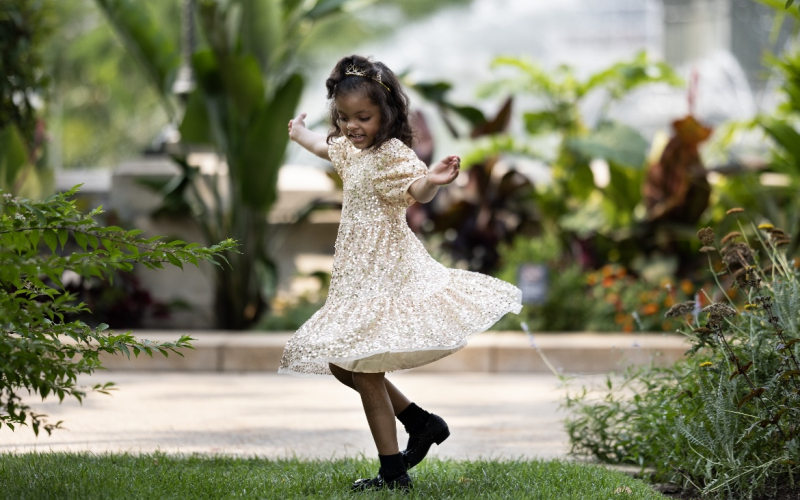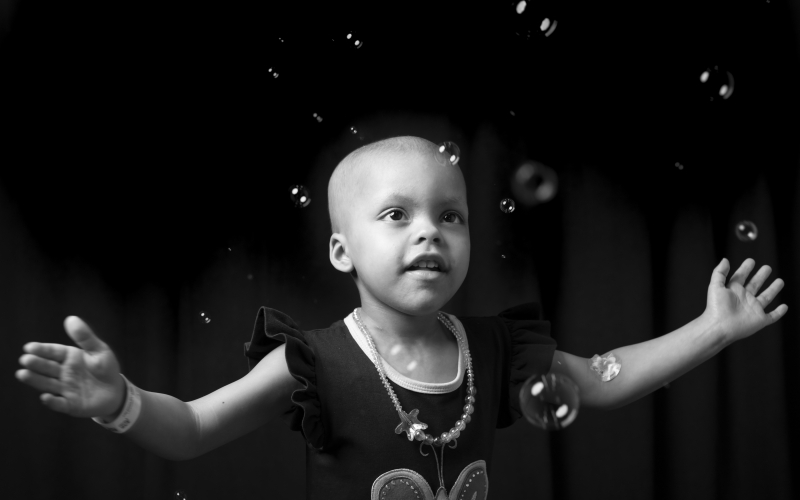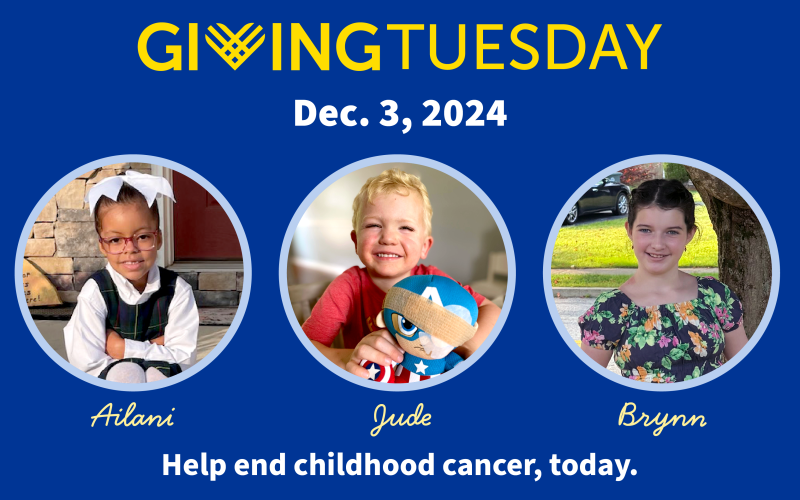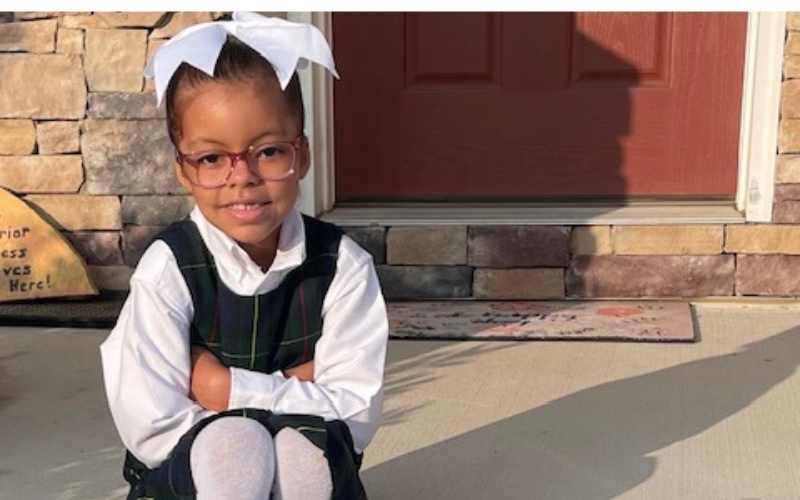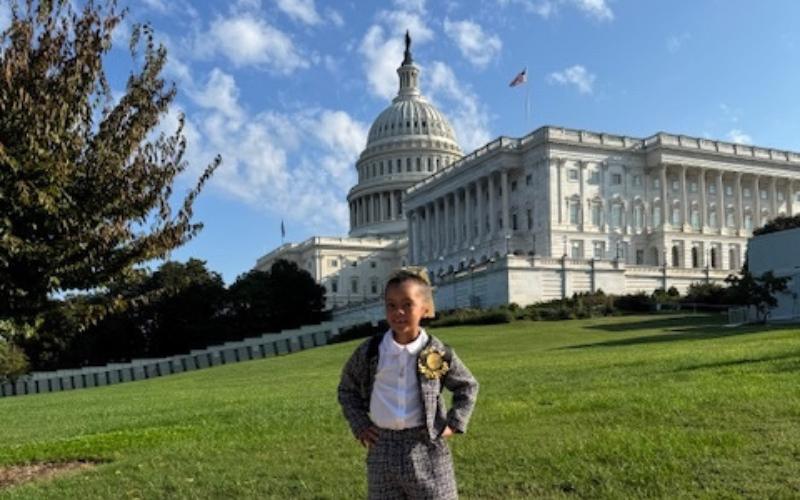By: Trish Adkins
If you hang around 8-year-old Ailani long enough, you might hear her humming one song or another, maybe Fight Song, which she’s performed on stage at several childhood cancer awareness events. You might catch her playing with one of her many dolls, prepping her babies for the day or the night. Ailani likes to talk, too.
When we interviewed Ailani and her parents, Kurt and Princecine, a few weeks ago, she left partway through the interview to play, but made sure to let us know that she wanted to come back before we finished.
“Let me know when you say goodbye,” she sang before jetting off to tend to her babies.
Ailani, whose name means “High Chief,” looks like a typical third grader, all bright eyes and playful energy, two missing front teeth, and a little spot of brownie batter on her school uniform following an after-school baking session with her mom. But Ailani is anything but typical. Diagnosed at 2 years old with acute lymphoblastic leukemia (ALL), she’s endured relapse after relapse, countless clinical trials, two stem cell transplants, and four different CAR T therapies. 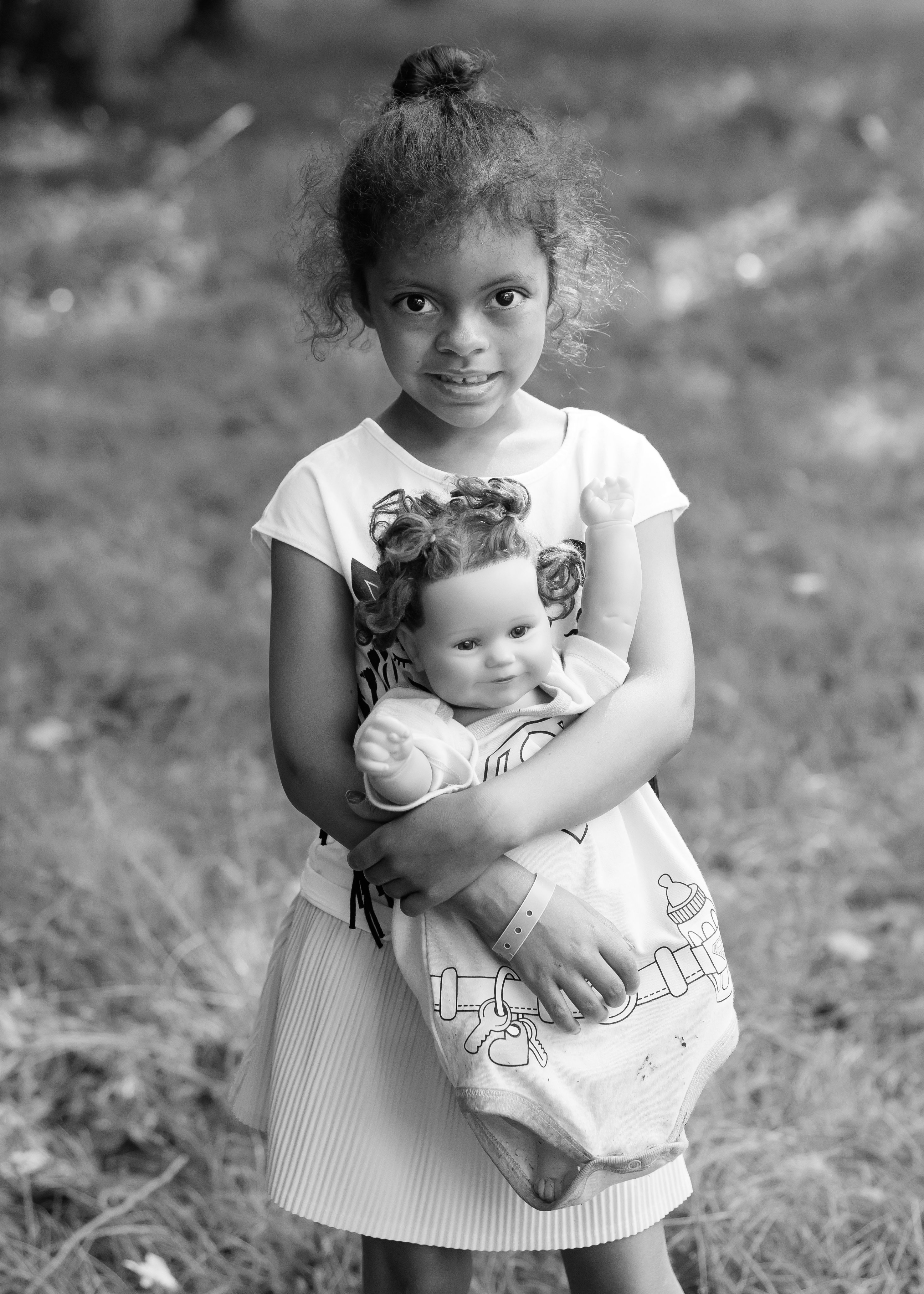
“You’d never know by looking at her that she’s been through so much,” said Princecine. Ailani completed her last CAR T therapy nearly nine months ago, after a relapse interrupted second grade. It had been her first year going to “real” school and her seventh relapse. This December, just before Christmas, Ailani will have a bone marrow biopsy and find out if this relapse was her last.
“We just live between biopsies,” said Princecine.
Help kids like Ailani this Giving Tuesday
Princecine and Kurt, first noticed some signs of trouble while moving from the West coast to the East coast. Stopped for a visit with family in Texas, Princecine noticed that Ailani had what appeared to be a rash of small red dots on her body. An urgent care doctor diagnosed her with petechiae, a condition caused by broken capillaries. There are lots of causes of petechiae ranging from not-so-serious to very serious. Urgent care suggested blood work at the emergency room. So Princecine took 2-year-old Ailani and found out her platelet count was dangerously low. After a transfer to the local children’s hospital, Ailani got her diagnosis: ALL.
ALL, a cancer of the blood and bone marrow, is the most common type of childhood cancer, accounting for about 25% of all pediatric cancer diagnoses. It is considered one of the most curable pediatric cancers with five-year survival rates of 90%. Feeling scared, but hopeful, Princecine and Kurt prepared to stay in Texas for Ailani’s treatment. They were moving some rental furniture into a short-term apartment when they got the call:
Ailani had ALL with a rare, hard-to-treat mutation. Her chances of surviving five years went from near certain to only 30%.
Urged by local doctors to transfer to a bigger, better equipped hospital, the family moved to Baltimore. Ailani began treatment – chemotherapy and a bone marrow transplant with her dad as her donor. Ailani, her mom says, was a trooper through diagnosis and her early treatments. “Transplant exhausted her, but as long as she felt well enough to play, she would play,” said Princecine. The family spent seven months living in the local Ronald McDonald House until they could find a permanent place to live.
Then, one year after finishing initial treatment, Ailani relapsed. The family decided to try a CAR T clinical trial. CAR T therapy is a cutting-edge immunotherapy that makes use of a person’s own immune cells that are harvested, genetically edited to see cancer cells, and then returned as a therapy designed to attack cancer cells.
During that first trial, Ailani, immunosuppressed from treatment and cancer, developed a fungal infection from a small scrape in her knee. It was a terrifying time – one of many for the little girl. “We really thought weren’t going to leave the hospital with her,” said Princecine.
Ailani recovered and returned to treatment, only to relapse again, and again. Each time, her parents searched for a new trial. “Chemo didn’t work for her. Bone marrow transplants, those didn’t work for her. The only thing we’ve had to rely on is clinical trials,” said Princecine.
Ailani’s last treatment, earlier in 2024, was another CAR T trial – giving Ailani the most CAR T cells ever given to a child. The treatment didn’t seem to work at first; but a bone marrow biopsy six months later showed her disease burden dropping. Now, as Ailani waits for her next biopsy in December, the family is “floating on hope,” according to Princecine. Research has fueled that hope.
“Without research, Ailani wouldn’t be here,” she said.
***
When Ailani returned to the interview, she brought along a very special coloring book that featured her as the main character. The coloring books are at oncology clinics all over the country. “All the pages are me. Some of them are in the hospital. Some of them are with my Beads of Courage. Some of them are with my Battle Buddies,” she explained.
Ailani nicknamed the kids she’s gotten to know at clinic and the hospital as her “battle buddies.” There is also a coloring page showing Ailani at the Capitol Building in Washington, D.C. Ailani went there to share her story and lobby for more childhood cancer funding. “I want them to get better medicine for kids,” Ailani said, and then ran off, back to her regularly scheduled playtime.
Ailani’s parents dream of the day when they look at their daughter and tell her that she’s beat cancer.
“I just want for her to grow up,” said Kurt, “And say, ‘I never gave up, I fought so hard, after years and years of getting more therapy than just about anybody, I finally beat it’.”
You can help families with children like Ailani who are fighting right now to get lifesaving treatments. Donate today!

